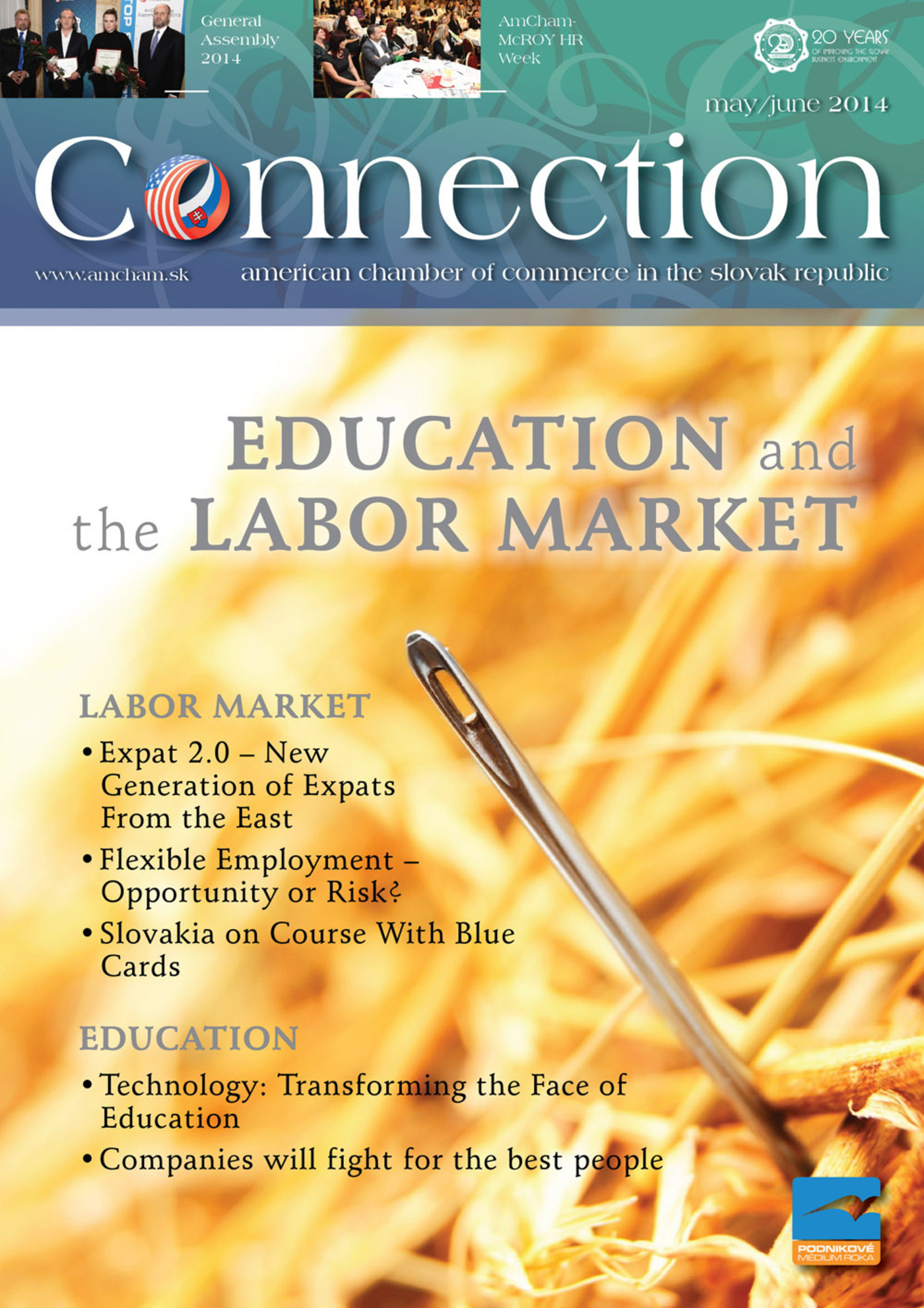What do you think will be the biggest HR challenge in 2014?
The war for talent. We are in the paradoxical situation where, despite the high rate of unemployment that we face, not only in Slovakia but also in other countries, the market is lacking highly-skilled and talented people. As an example, take IT specialists, but also other professions. In Slovakia, as well as throughout the rest of Europe, tech-savvy people are missing in general. And this deficit may still grow substantially. It must be noted that by 2020, up to 90% of jobs will require technical skills. Companies will have to literally fight for good people, not only with their local competitors, but also globally. Those who focus only on their own region must realize that they will not find enough real talent.
Does it mean that the so-called brain drain will continue?
The brain drain has become an everyday reality, a normal part of the labor market which is, de facto, useless to fight against. The very term “brain drain” refers to the local perception of the problem – we complain that someone flees from a market or area. But it is necessary to realize that the national borders have long been unable to stop talented people, and nothing about this fact is going to change. Therefore, from the viewpoint of HR managers, the war for talent cannot be limited to the local market any longer. It is necessary to look for people from other countries, and not limit the search to just the European continent. These needs should also be addressed by the legislation, but unfortunately, Slovak legislation prevents rather than helps the influx of a qualified work force from abroad.
How does HR need to respond to this situation?
It needs to move into the online world. People today live on social networks, therefore companies must go there to look for them. This applies not only to sales and marketing, but also to HR. Recruitment advertising is dead. Whoever wants to hire innovative, creative and enthusiastic people must use an innovative, creative and enthusiastic recruitment approach. Thus, features of marketing will penetrate HR more and more, with an increasing emphasis on the need for quality analytics and the ability to predict market trends. People change, and HR must change with them.
How do people change?
Now, the so-called Generation Y is coming to the forefront. Its definition tends to vary, but in McRoy we perceive it as people born between 1982 and 2000. Today they account for 1.4 million people in Slovakia. Yet in 2020, Generation Y will represent 50% of the global working population, and five years later it will be as much as 75%. This generation of people can be called technical, globalized and consumerist.
What are they in terms of work?
The motto of these people is: “Everything is possible”, which also influences their approach to work. They are ambitious and confident, although sometimes overestimating their strength. These people consider it natural to learn from their own mistakes. They want freedom, creativity and flexibility, including working online. They require the possibility of career growth and good bosses, although they are often not such types of people themselves. What matters to them are experiences, image and status, and they care less for the content of their work. They do not want to spend their lives at work. Often their parents did not have time for them, and so they have said that they will be different. They place greater emphasis on the family and work-life balance, and they do not like working overtime. Even if they do not currently live in luxury, they see luxury as something of a right, and they want to achieve it.
This characteristic is not good news for companies at first glance...
Not at first glance. But there is no need to be afraid of Generation Y. Rather, it is necessary to utilize their potential. These people do not want to do what they do not like doing, so it is necessary to ensure that their work is interesting, and that they can make good use of their skills, be creative, share their successes, and work in a team. Companies need to change their approach, strengthen direct communication links, learn to praise the quality of work, and to put emphasis on team building, coaching, and an informal and fun work environment. All of this can be learned. And if someone does not know how, there are always people around who are ready to help to implement new processes. Because ignoring the need for these changes may not pay off in the long term.
Luboš Sirota, Chairman of the Board & CEO McROY Group



Follow us